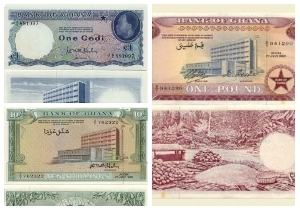Without a scintilla of doubt, air transport (infrastructure) is a vital pillar in realizing the NDC’S flagship policy of transforming Ghana into a 24-hour economy. This is because, in a world where business, commerce, and connectivity extend beyond traditional hours, air transport plays an essential role in supporting seamless globalisation, swift movement of goods, and convenient travel for citizens. By improving and expanding air transport (infrastructure), the NDC aims to elevate Ghana's position as a competitive, interconnected economy that is open for business 24 hours a day. In this article, I will we delve into why a robust air transport system is crucial to the success of Ghana’s 24-hour economy and how NDC intends to harness this lever to drive sustainable growth across the country.
Air transport is central to a thriving 24-hour economy, providing rapid, long-distance connectivity that is crucial for business, trade, and tourism. It supports the continuous flow of goods and people across borders, contributing to both domestic and international economic growth. With Ghana’s strategic geographic location as a gateway to West Africa, the NDC envisions an air transport sector that not only meets the needs of a 24-hour economy but also positions Ghana as a regional hub for transit, logistics, and tourism (see Section 4.2.4.2 of NDC’s Manifesto).
A comprehensive approach to air transport infrastructure—including airports, air cargo facilities, and supportive policies—will ensure that Ghana can accommodate increased air traffic, facilitate seamless operations at all hours, and foster international business partnerships. Enhanced air transport infrastructure will enable round-the-clock activities that benefit various sectors, from agriculture and manufacturing to healthcare and tourism, thereby driving broad-based economic growth.
To support a 24-hour economy, airport facilities in Ghana must operate continuously and efficiently. As an important lever, the NDC’s plan involves upgrading existing international and regional airports, such as Kotoka International Airport (KIA) in Accra, to meet modern standards and handle increased air traffic. Continuous upgrades to terminals, runway lighting, and other critical infrastructure will ensure that airports can operate smoothly and safely throughout the night. Enhanced airport facilities, including expanded terminals, automated check-in systems, and improved baggage handling, will reduce delays and improve the travel experience of passengers arriving at any time. The NDC also recognises that for Ghana to function as a true 24-hour economy, it is essential to create an environment where travellers and cargo can move without cumbersome administrative bottlenecks or delays and that is what the NDC promises to deliver.
The National Democratic Congress under the abled leadership of His Excellency John Mahama recognises that air cargo infrastructure is fundamental to supporting a 24-hour economy, as it enables the rapid transportation of goods, from high-value items to perishable products. Ghana’s Kotoka International Airport (KIA) is a central hub for air cargo, particularly for goods such as pharmaceuticals, perishables, and electronics. In 2023, KIA processed an estimated 50,000 metric tons of air cargo, and this volume has been steadily increasing. The NDC’s vision emphasizes the development of air cargo facilities, including cold storage and warehousing, that operate continuously.
This infrastructure is particularly beneficial for sectors such as agriculture, where perishable products need to reach global markets quickly to retain value. By investing in cargo terminals and logistics facilities at airports across the country, the NDC aims to boost Ghana’s export potential, allowing local businesses to efficiently send products abroad, regardless of the time of day. Moreover, with a 24-hour cargo operation, Ghana can attract international logistics firms, turning the country into a regional air cargo hub that connects West Africa with the rest of the world. This will not only create jobs but also provide local businesses with cost-effective and reliable export options.
The 24-hour economy is not limited to Ghana’s capital; it requires efficient connectivity across regions to ensure that the benefits of continuous economic activity reach all corners of the country. The NDC therefore proposes to develop regional airports across all the 16 regions and enhancing their capacities to handle both passenger and cargo traffic. By improving domestic air transport infrastructure, the NDC aims to support regional businesses, promote tourism, and facilitate the movement of workers across Ghana. Upgraded regional airports would enable faster connections between Ghana’s cities and regions, making it easier for businesses to operate across distances. This regional connectivity can drive economic activity, encouraging investment and enabling industries outside the capital to participate in and benefit from Ghana’s 24-hour economy. For instance, tourists and business travellers could reach destinations around Ghana such as Cape Coast and Salaga more easily, boosting local economies and fostering greater economic inclusion.
Security is a top priority in any 24-hour air transport system, as it ensures the safety of passengers, cargo, and airport staff. The NDC’s air transport infrastructure plan will include a focus on upgrading security systems, including enhanced screening technologies, surveillance, and emergency response protocols. These measures are particularly important for late-night operations when security risks are higher, ensuring that Ghana’s airports remain safe for continuous operation. Additionally, air traffic control systems will be modernized to manage increased traffic and ensure efficient routing for both domestic and international flights. With a secure and technologically advanced air traffic management system, Ghana will be better equipped to handle the demands of a 24-hour economy, allowing flights to land and take off seamlessly around the clock.
For Ghana’s airports to remain operational 24/7, the integration of advanced technology is essential. The NDC’s vision includes implementing digital solutions, such as e-gates, biometric check-ins, and online customs processing, which reduce wait times and enhance operational efficiency. Digital tools and real-time data monitoring can also streamline air cargo logistics, allowing for faster processing and reducing delays. By investing in technology, Ghana’s airports can offer a modern experience for passengers and cargo clients, improving reliability and transparency. This technological advancement will help establish Ghana as a preferred destination for both travellers and international businesses, enabling the country to attract more flights, increase tourism, and facilitate trade.
An effective air transport system operating on a 24-hour basis brings far-reaching economic benefits to Ghana. First, the expanded airports and air cargo facilities will create employment opportunities, from construction to operations, benefiting local economies and stimulating job creation. Second, increased air traffic will attract foreign investment in sectors such as tourism, hospitality, and logistics, further enhancing economic growth.
Moreover, a fully functional air transport system supports local businesses by enabling them to access global markets faster and more cost-effectively. For instance, Ghana’s agricultural sector could benefit immensely from air transport, as fresh produce can reach international markets more quickly, reducing spoilage and increasing profitability. In addition, the tourism sector will thrive with 24-hour airport access, drawing in visitors at all hours and making Ghana a more attractive travel destination. Finally, by positioning itself as an air transport hub for West Africa, Ghana can facilitate trade across the region, creating additional revenue streams and strengthening its economic standing on the continent.
Opinions of Tuesday, 12 November 2024
Columnist: Sheriff A Idriss-Yahya



















